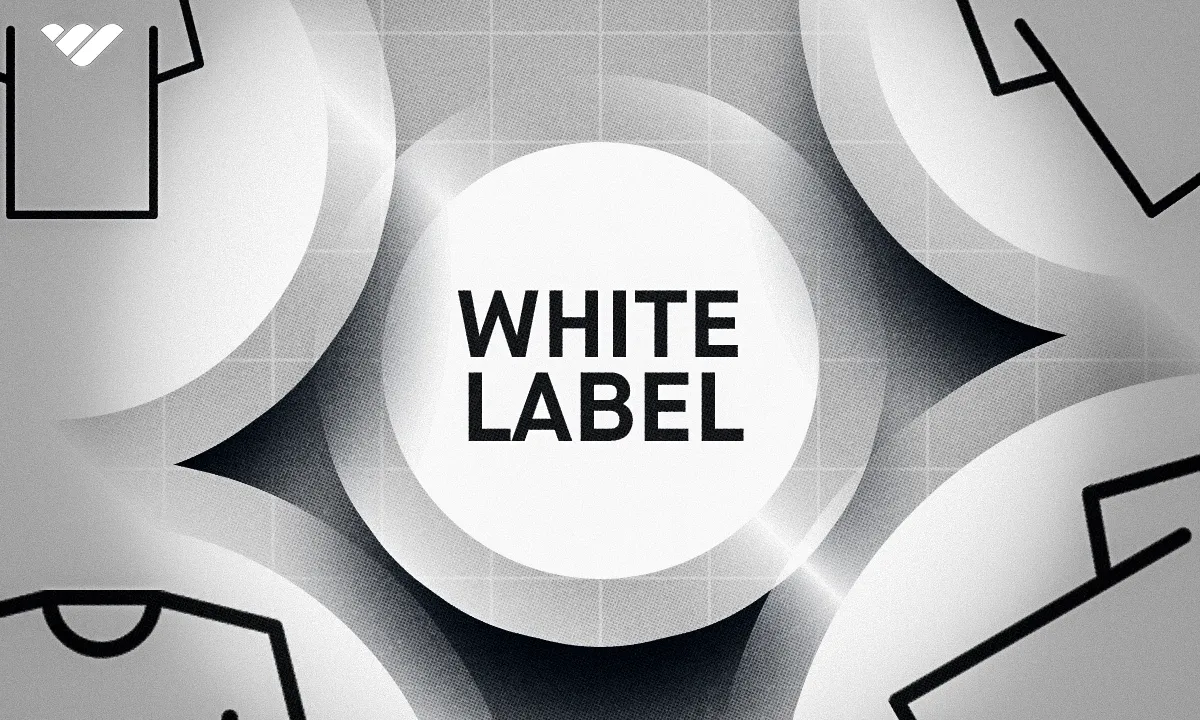White labeling is one of the many innovative business models taking brands forward with unprecedented efficiency and time to market, but what it is, and is it the right business model for you if you’re looking to launch your own online store? Let’s find out.
Key takeaways
- White labeling lets entrepreneurs skip manufacturing entirely, selling ready-made products under their own brand with minimal startup barriers.
- Success depends on creative marketing and branding since competitors sell identical products from the same suppliers.
- White labeling suits trend-focused entrepreneurs who can pivot quickly, but limits product customization and differentiation.
The scale of global commerce can sometimes feel overwhelming, but all those products you see advertised and sold need to come from somewhere. Manufacturing isn’t something we tend to think about day to day, but it’s an incredibly complex part of doing business — and it’s one that more and more brands are distancing themselves from as the world of ecommerce continues to grow.
White labeling is one of the many innovative business models taking brands forward with unprecedented efficiency and time to market, but what it is, and is it the right business model for you if you’re looking to launch your own online store? Let’s find out.
What is white labeling?
White labeling is a process where a single product is manufactured by a firm and then sold under different brand names, with different logos, packaging, and even with a different price tag attached.
You’ll see this business model in practice in many areas, whether it be ecommerce, retail, and even the direct-to-consumer segment — and the easiest examples to find may be in your local supermarkets, especially when it comes to store brand versions of generic items.
Each store might attach its own name and branding, but the product is the same or very similar across stores and likely comes from the same manufacturing source.
How white labeling works
Here's a step-by-step guide to get your white label business up and running:
- Find a product
Before you go down the path of setting up a white label business, you need to find a product. Do your research to find a popular niche that fills a gap in the market, so you know your products will sell. - Find a supplier
Once you have a product in mind, it makes it easier to narrow down a supplier, as many suppliers specialise in one area. Look at factors such as quality, reputation, and cost to find the best fit. - Brand customization
Most white label suppliers will customize your product to match your unique branding and identity, so it's important to have this ready to go before you start marketing. - Tool integration
Some white label suppliers offer integration tools that make the process seamless. It enables automation, sending orders made through your website directly to your supplier, so the reselling process is nice and hands off. - Sales and marketing
Finally, it's time to market your new product under your business name. You can do this by leveraging your existing social channels and newsletter subscribers to drive sales.
10 examples of white label suppliers
1. Seed Beauty
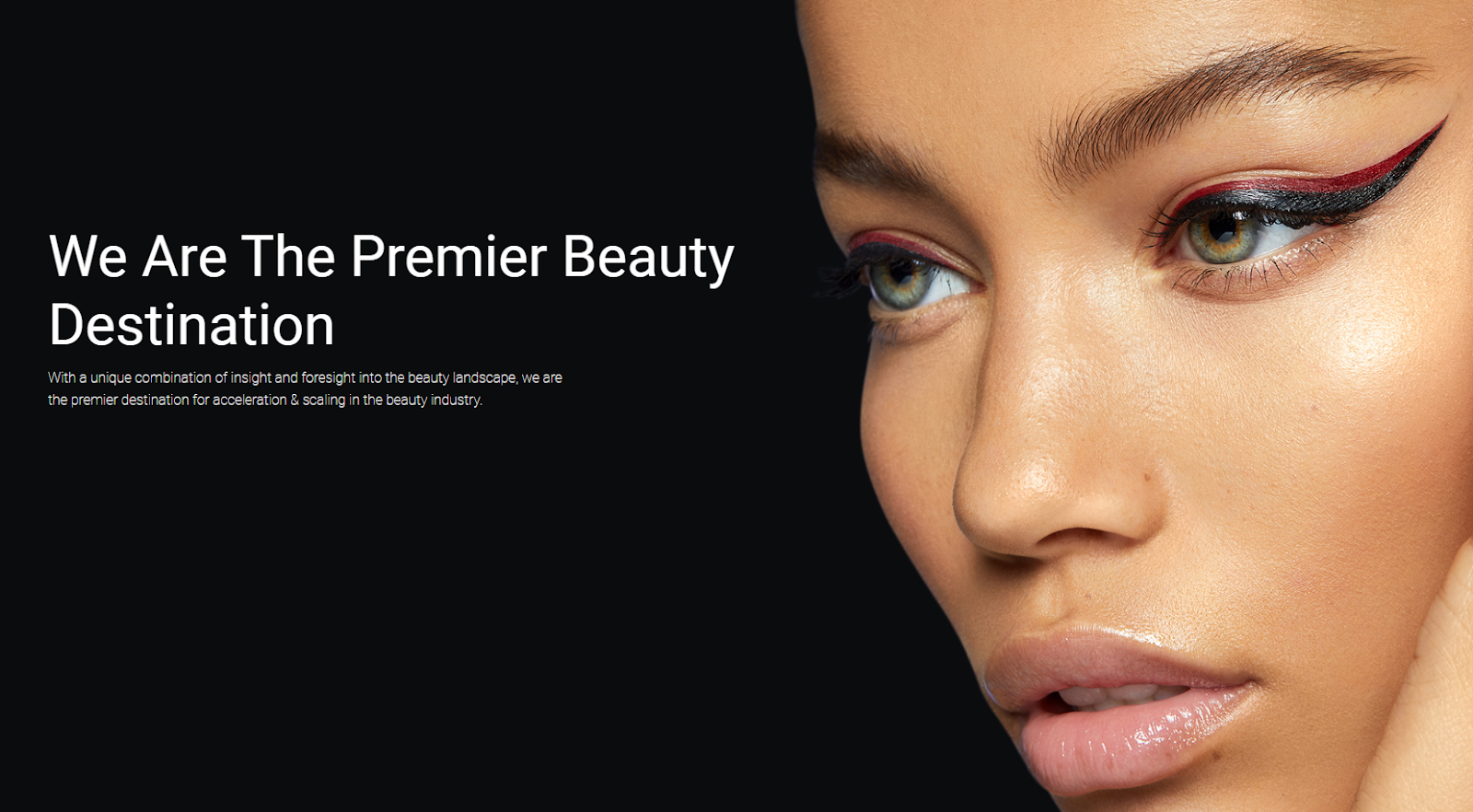
Seed Beauty is an extremely well-known supplier of white label products, and has been in the public eye thanks to a lawsuit against their high-profile customer, Kim Kardashian West, back in 2020. Seed developed and manufactured Kardashian West’s cosmetics, even packaging and shipping KKW Beauty products to customers.
In fact, KKW Beauty only helped to design and promote their products, trusting Seed with everything else, and Seed took KKW Beauty to court because of the risk that its own trade secrets would get out if a deal to sell KKW Beauty to cosmetic industry giant and Seed competitor Coty were to go through.
2. T-Swing
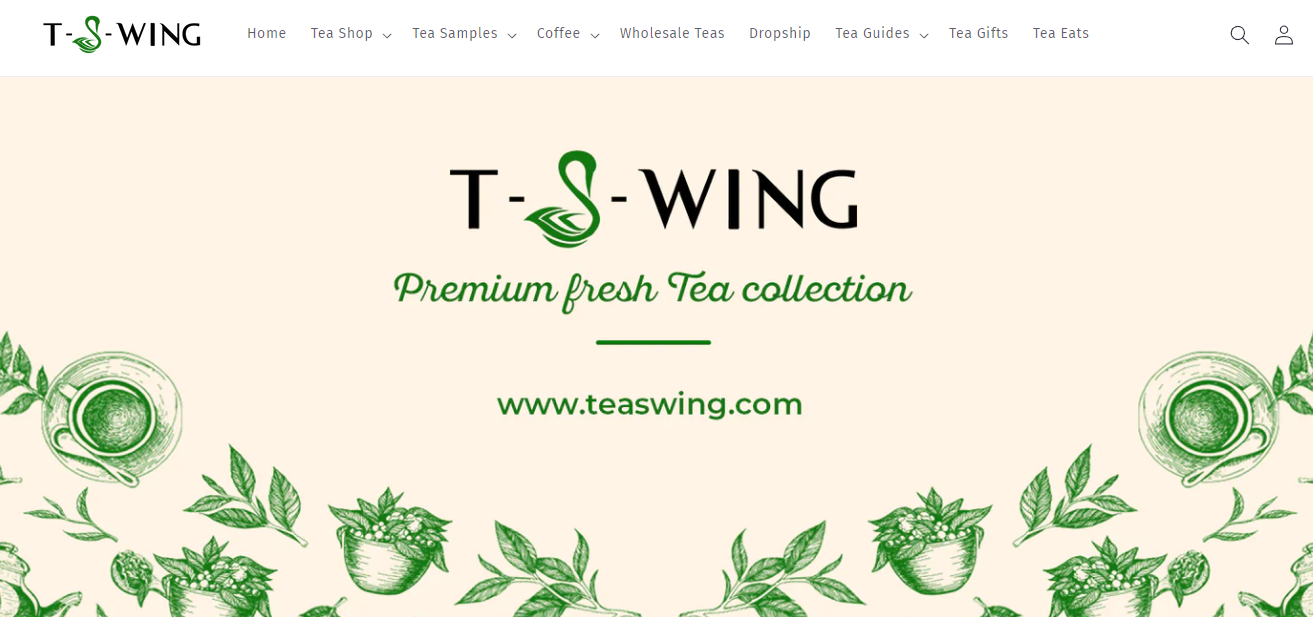
T-Swing, previously called TeaSwan, is one of the top white label suppliers for ecommerce companies and online store owners looking to add tea to their dropshipping product portfolio. It’s a service that operates beyond borders, and offers a completely customizable service in terms of branded packaging, labels and logos, and even attached invoices.
However, T-Swing isn’t quite as convenient as some of the other white label services out there in terms of operations, as you must order via email in a specific format, which is more complicated than simply using an integration.
3. Dripshipper
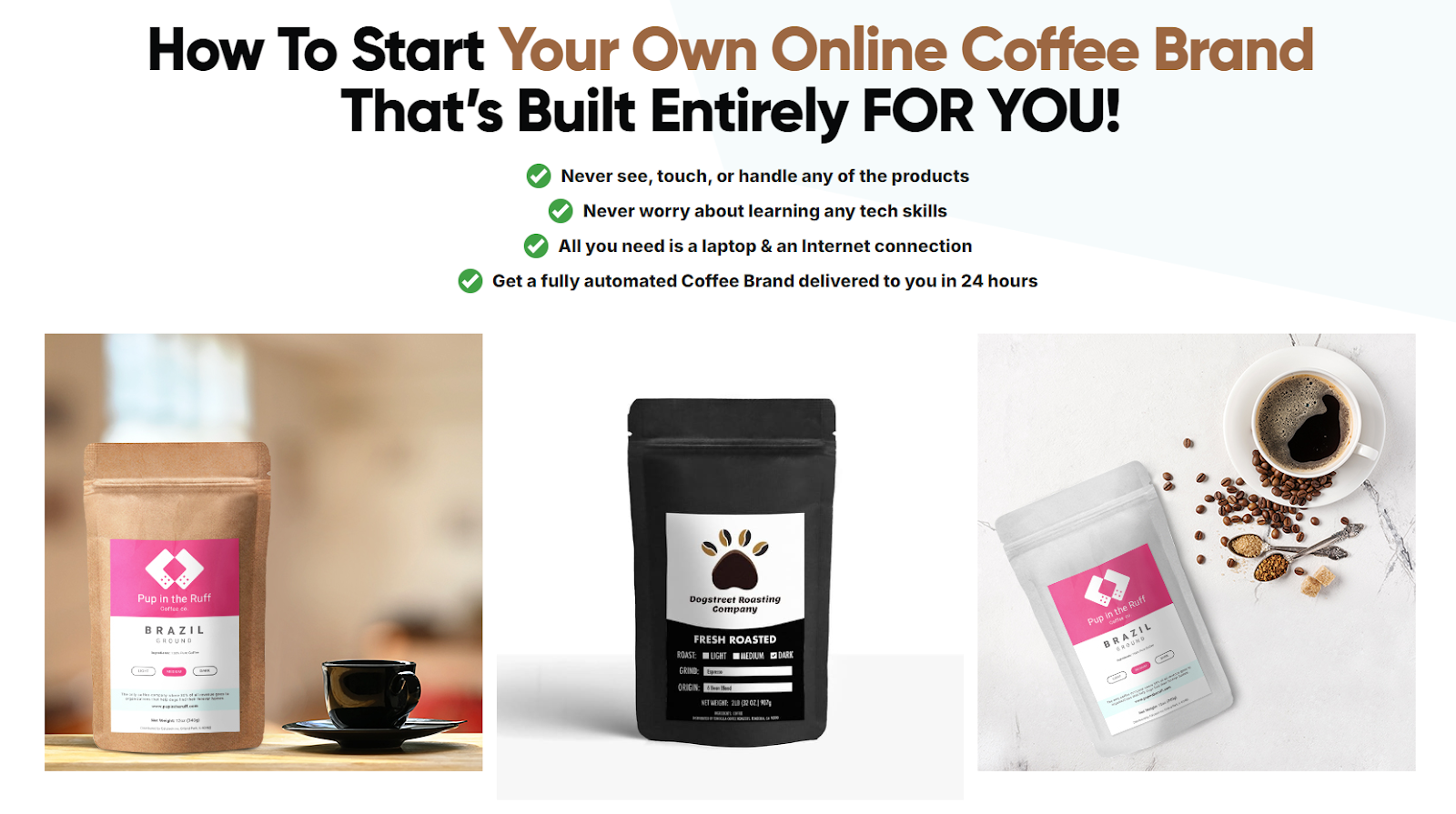
If tea isn’t your thing or you just want to capture the other half of the market, then Dripshipper is worth a look. It’s an all-in-one dropshipping option for coffee lovers, and lets you run your entire operation without even seeing, let alone handling, the products that go out with your branding on them.
Dripshipper does integrate quite easily with websites as well as select online ecommerce platforms, and roasted coffee that customers order is shipped from the USA within 3-5 business days.
4. Power Body
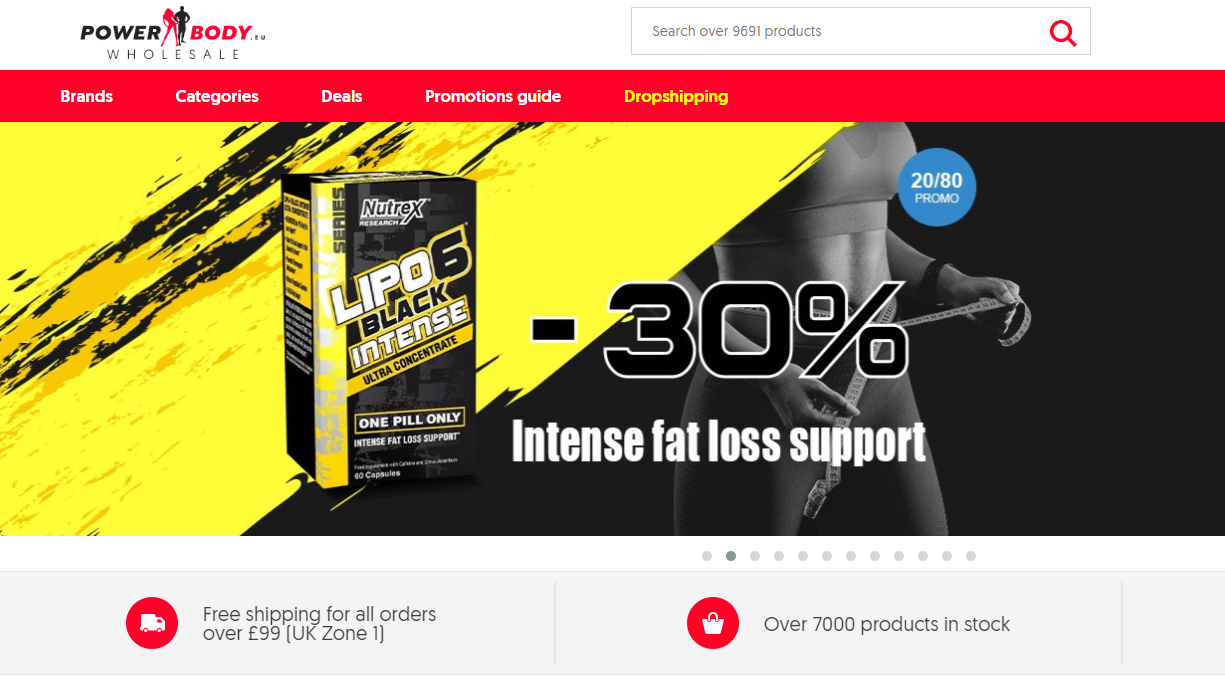
Power Body is one of the top white label suppliers when it comes to fitness nutrition, and while they’re listed as a wholesaler their dropshipping service is a customer favorite. They’ve got 80-plus brands selling some of the thousands of products they offer, and there’s even API integration to link directly to your online store.
With Power Body, it’s not just selling branded products with your own logos, but it’s also fully branded packaging as well as a branded invoice to go with it — the entire unboxing experience is associated with your brand, not theirs.
5. Next Day Nutra
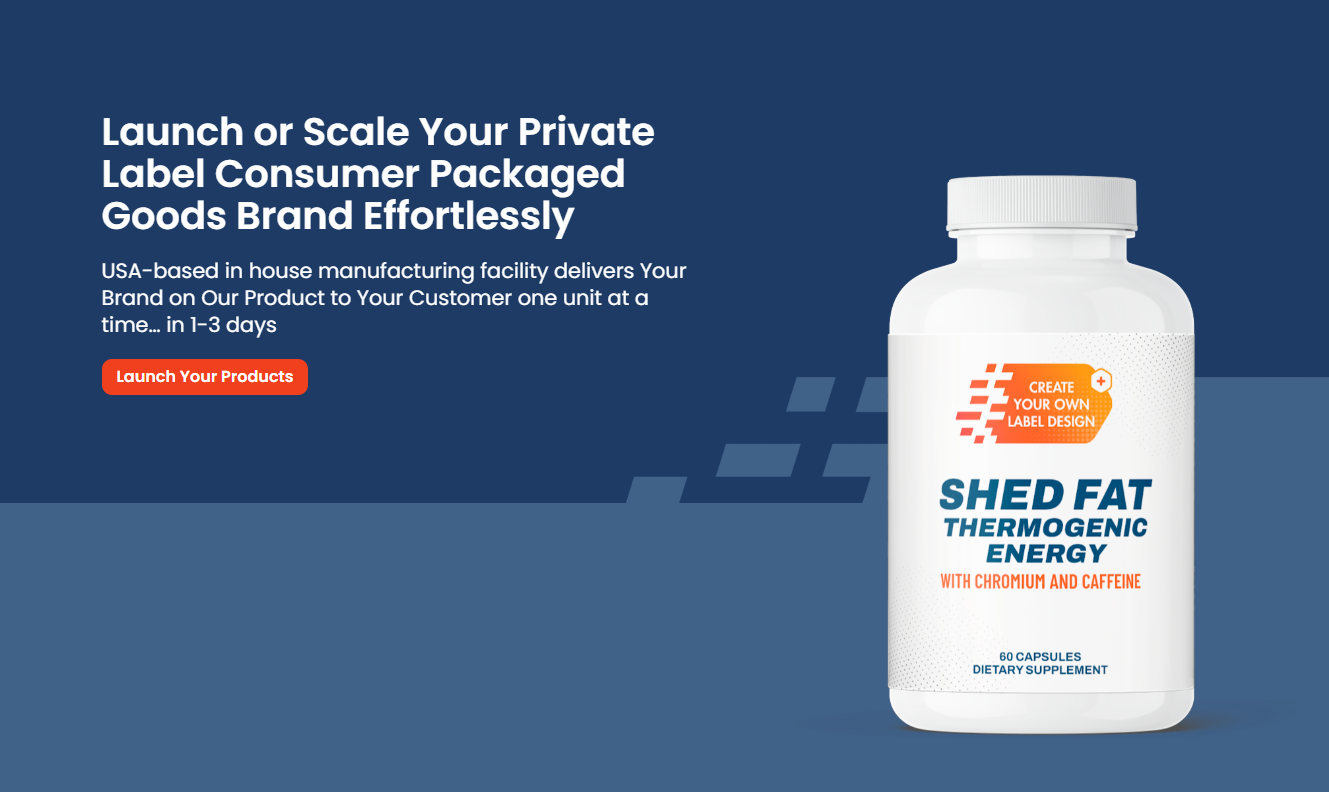
If you’re looking for a white label supplements option that specializes in the US market, then Next Day Nutra (formerly HoneyComm) should be right at the top of your list. They offer an all-in-one package for dropshipping, with the manufacturing and fulfillment taken care of alongside all of the software, tools, and marketing support you need to build a supplements brand.
Now, with any product of this sort, compliance is a concern — but Next Day Nutra’s on top of that too, with products made in the US and fully compliant when it comes to FDA registration and regulations, as well as GMP certification.
6. Printful
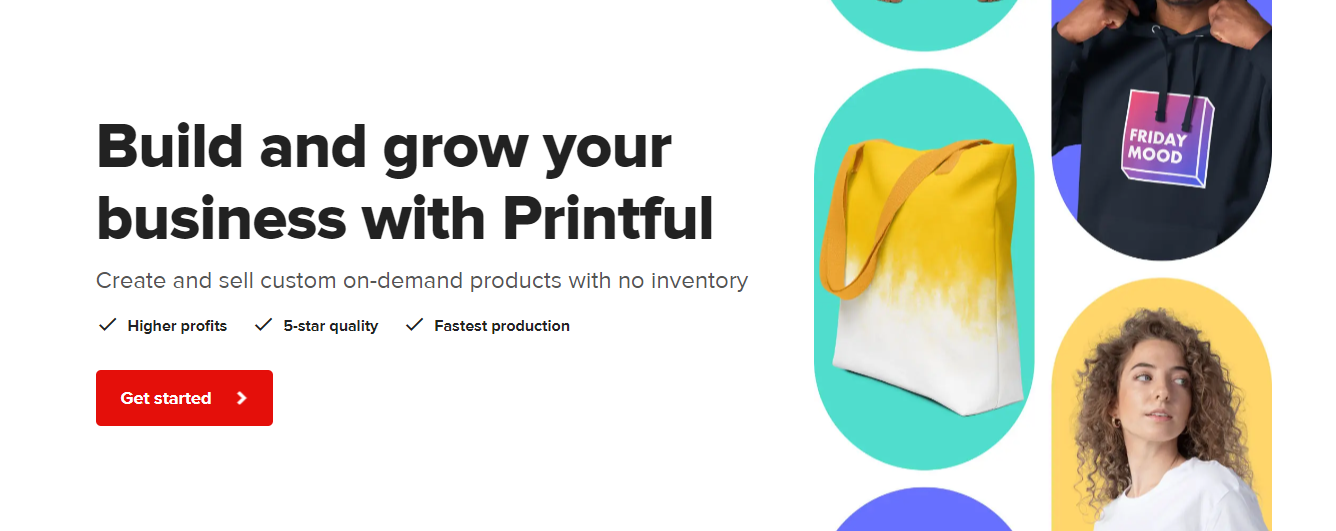
To say Printful is a mere print-on-demand supplier would be doing the company a disservice, as they’re so much more than that these days. With warehouses all over the world to ensure quick lead times regardless of location and comprehensive white label services, they’re a compelling option for white label products in a variety of categories.
Interestingly, Printful also offers customizable products produced by major brands. This isn’t a 100% white label service since the logo and label of the original brand will be subtly present, but that’s a good thing since the brands we’re talking about are high-end ones in their own right such as Adidas, Columbia and Champion.
7. Alibaba

Alibaba is a platform that connects consumers to wholesalers, but a lot of small brands actually use Alibaba as a vital cog in their white label business models. In short, these brands tend to connect with a dropshipping agent, a partner who will take the stock you buy from Alibaba, add your branding, and ship orders off to customers on your behalf.
However, handling Alibaba isn’t for everyone—getting deals across the line means being able to communicate with the suppliers on the platform, and language and cultural barriers can get in the way. On top of that, you’ll also have to factor in the lead times when it comes to order fulfillment since shipping from the supplier might take a while.
8. AliExpress
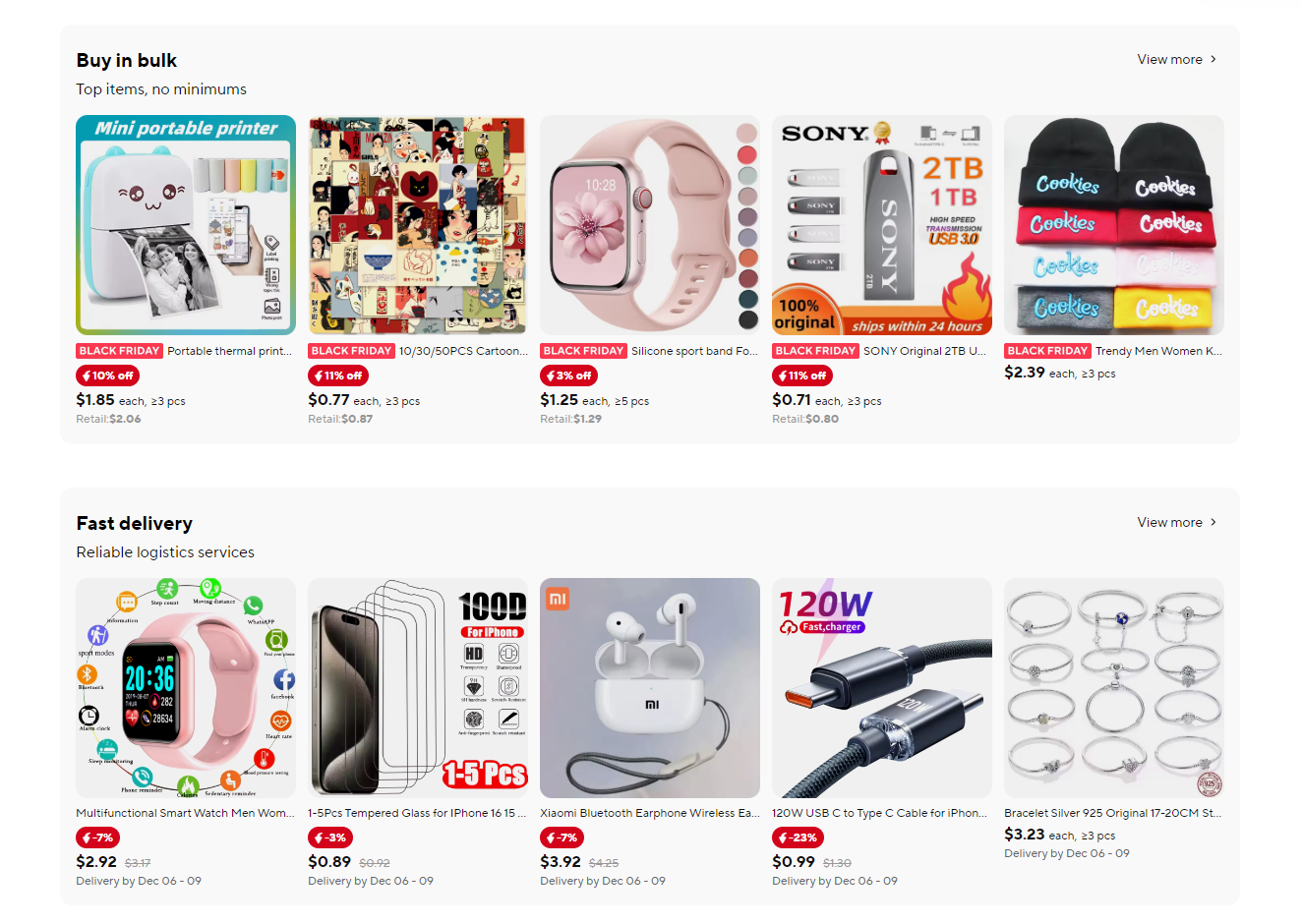
AliExpress works a lot like Alibaba, except that it’s catered a lot more toward dropshipping and white labeling. When you order products off the platform, there’s generally an option to order them with your own branding and logos — some suppliers don’t offer this feature, but there are plenty that do.
Finding a good supplier is the key to incorporating AliExpress into your business model. The right supplier will offer you all sorts of white label options including branded packaging and invoices, but there are also a lot of bad apples to sift through, including dishonest suppliers. Tread with care.
9. DropCommerce
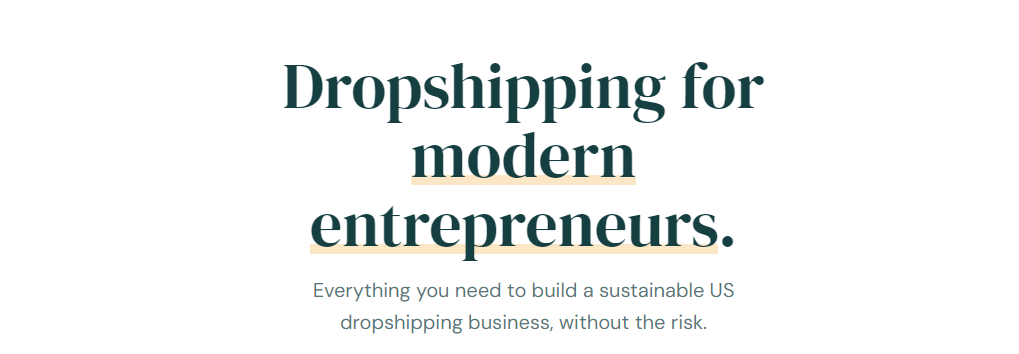
If fulfillment lead times and deliveries from far afield aren’t something you want to deal with, DropCommerce could be worth checking out. It’s a platform hosting hundreds of North American product suppliers, meaning that you can get products to your customers faster here than with most other options.
However, DropCommerce (as its name suggests) is more of a dropshipping platform rather than an out-and-out white labeling service. That means that custom-branded logos and labeling isn’t always going to be on offer, although branding invoicing is part of the package.
10. BigBuy
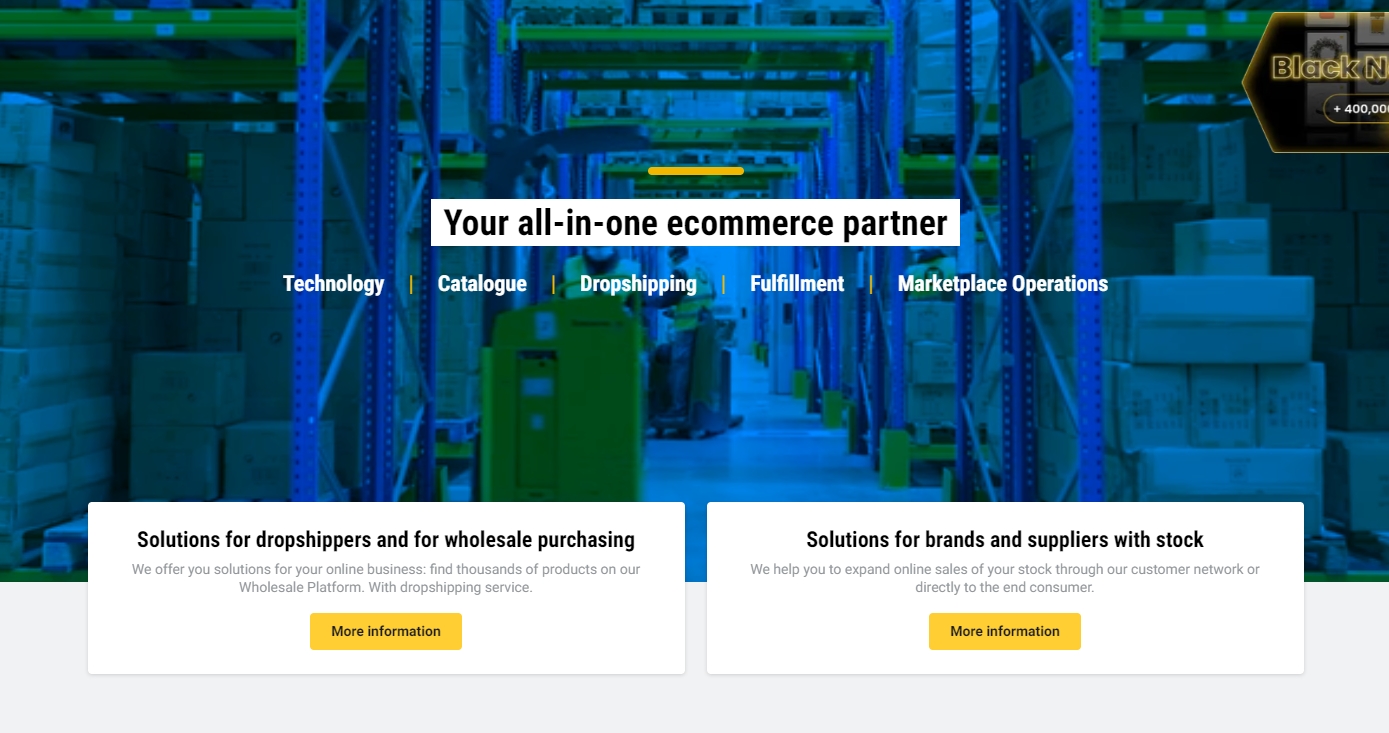
If you’ve got lofty ambitions and want to operate on a continental scale, BigBuy is a white label and dropshipping platform that might be of very significant interest to you. BigBuy lets you sell across a significant number of platforms and serve different countries, and covers the tech you need to do this as well as the product catalogue and fulfillment services that fill out the model.
BigBuy’s weakness is custom logos and labels, so it’s not a perfect white label service outside of a selected range, but you’ve got branded packaging and invoicing which is enough to make it work.
The pros and cons of white labeling
Pros of white labeling
- Mature products: The product development process is an involved and often costly one, but you can skip all of that since you’re selling products that are already prepped and ready for market.
- Speed to market: You can start a white labeling business extremely quickly and adopt or pivot to new product lines just as fast, letting you get on top of whatever’s trending.
- Reduced involvement: Not everyone can handle the operations side of a traditional business, and white labeling means you don’t need to engage with manufacturing or fulfillment at all.
- Convenience: Given that all you need to take care of is marketing, sales, and customer service, a white labeling business can be run anywhere and anytime you want, and all you’ll need is a computer and an internet connection.
Cons of white labeling
- Competition: There will be other brands selling the same items as you, even acquired from the same supplier, so competition on the marketing and pricing front may become intense, even leading to price wars.
- Creativity: Tied to the above, the only way to really get ahead with white labelling is creativity in terms of marketing. You’ll need to develop attractive designs or effective campaigns, because the product itself is going to be quite generic.
- Constraints: Despite the creativity required to get ahead, you’re also going to be constrained in terms of what you can and can’t do by your white label suppliers. They may not be able to print certain resolutions or colors, for example, so your stand-out designs may not work on the packaging or even on the product.
Is white labeling the right choice for you?
White labeling is an excellent option for entrepreneurs looking to establish a new source of revenue or capture a particular trend effectively and in a timely manner. Many content creators also use it as a way to broaden their horizons, releasing and marketing their own (or others’) white label products to supercharge their earnings.
One of the main bonuses of white labeling is that it allows you to skip the entire manufacturing process, and that’s often a huge barrier when it comes to getting products to market. The attached downside is that you’re restricted in terms of product particulars, so the trick with this business model is branding and marketing.
If you’re able to identify market segments where these two areas play an outsized role in consumer decision-making, then white labeling is definitely the way to go. We’ve already looked at several niche white label suppliers, and their products can tell you everything—coffee, tea, skin-care and cosmetics, supplements, fashion and apparel, and even food and beverage are areas where white label brands do very well.
A white labeling alternative: Private labeling
If the constraints of white labeling are too much for you and you feel that you need more of a say when it comes to the makeup, specifications, and quality of the products you’re going to be attaching your brand to, private labeling is the answer.
With private labeling, your manufacturing partner or supplier is going to be more accommodating when it comes to what you want, including changing ingredients or raw materials. However, the adjustments they need to make and this greater level of service means you’re going to be paying more of a premium than you would with a more generic white label product.
Here’s more about white labeling or private labeling is the right business model for you.
Another white labeling alternative: Dropshipping
If having your branding on the product itself isn’t a big deal to you, you can choose to go with the dropshipping model instead. Here, it’s all about getting a certain product to a certain market — not a generic product, but the right one for that segment, irrespective of what sort of branding is present on it. That said, you’ll probably want to whack your branding on some aspects of the experience, such as packaging and invoicing.
If you want some dropshipping inspiration going into the new year, here’s a list of the best dropshipping business ideas.
Find advice on white labeling and other aspects of ecommerce with Whop
White labeling is a business model that has a lot of advantages, such as being able to get it up and running extremely quickly even though delivery times may be on the longer side depending on the supplier(s) you link up with. However, it’s not the only business model you can make work, and your preferences when it comes to scale, market, and product category might change the focus of your new business or what’s most important.
To truly gain mastery of these factors, business models like white labeling, and ecommerce in general, make sure you visit Whop’s ecommerce communities. There, you’ll find other entrepreneurs who’ve explored white labeling and who’ve used some or all of the platforms we’ve mentioned above.
You’ll also find courses, workshops, and mentorship along with masterminds on all things ecommerce, all designed to help you refine and perfect your new white labeling business.
FAQ
What is a white label client?
A white label client is someone who purchases products or services from a supplier, then rebrands them as their own and sells them on. As a white label client, your advantage would lie in marketing and customer service, while a manufacturer takes care of production and fulfilment.
Is white labeling profitable?
White labeling can be profitable if you’re able to connect to your target market segment via clever designs and branding and smart application of different marketing techniques. It’s a good way to tag onto trends before they’re overdone, or take advantage of an existing audience ready to buy into a message or support your content creation.
How to start a white label business?
On the one hand, you’ll need to link up with a supplier for your product of choice. On the other hand, it’s about developing your branding and laying out a strategy connecting your target market to the product you want to sell to them via effective marketing.
What is white label vs. black label?
Black label is a term given to premium or exclusive products branded by the original maker or manufacturer. White label is a product sold to another entity to be rebranded before it reaches the end consumer.


